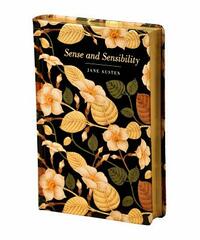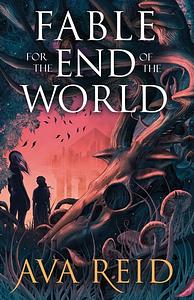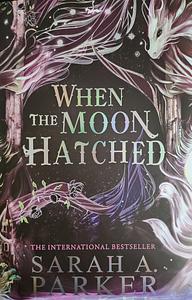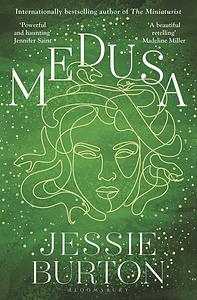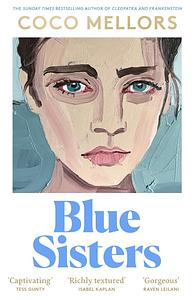You need to sign in or sign up before continuing.
Take a photo of a barcode or cover
booksonawednesday's Reviews (487)
emotional
lighthearted
slow-paced
Plot or Character Driven:
Character
Strong character development:
Yes
Loveable characters:
Yes
Diverse cast of characters:
No
Flaws of characters a main focus:
Yes
I’m grateful that this was my final Jane Austen book to read (and not Mansfield Park), because it is one of my favourites.
Perhaps controversially, I can’t get behind the love stories in the same way as Austen’s other books. Edward is quite a weak character, Willoughby is exceedingly selfish and Colonel Brandon… just too old.
However, any lack of romance is made up with my love of the two protagonists, Elinor and Marianne Dashwood. Their sisterly bond - despite their differences in personality - was so lovely to read about, and I became so invested in their characters.
The supporting cast - Mrs Jennings, John and Fanny Dashwood, Sir John Middleton, Lucy Steele - all had their roles to play as well, and they all brought something interesting to the novel, for good or for bad.
This is a great classical book, though perhaps not for the reasons that you would expect.
Perhaps controversially, I can’t get behind the love stories in the same way as Austen’s other books. Edward is quite a weak character, Willoughby is exceedingly selfish and Colonel Brandon… just too old.
However, any lack of romance is made up with my love of the two protagonists, Elinor and Marianne Dashwood. Their sisterly bond - despite their differences in personality - was so lovely to read about, and I became so invested in their characters.
The supporting cast - Mrs Jennings, John and Fanny Dashwood, Sir John Middleton, Lucy Steele - all had their roles to play as well, and they all brought something interesting to the novel, for good or for bad.
This is a great classical book, though perhaps not for the reasons that you would expect.
dark
tense
medium-paced
Plot or Character Driven:
A mix
Strong character development:
Yes
Loveable characters:
Complicated
Diverse cast of characters:
No
Flaws of characters a main focus:
Yes
A classic-feeling whodunnit with a fun Christmassy twist!
Eight friends who were part of the Masquerade Murder Society in their youth reconnect for another Christmas-themed mystery. Things quickly take a turn when Lady Partridge is found dead in a pear tree.
There was a dark academia feel to this book, with the group of intellectual friends also being high-flying, powerful members of society. The characters were interesting and unique in their own ways, and the plot had a good pace with shocking twists and turns.
Listening to it as an audiobook, I sometimes got a bit confused with the changes of timeline and perspective. Perhaps it would be easier to follow reading a physical book.
A great, Christmas thriller to finish off the year!
Eight friends who were part of the Masquerade Murder Society in their youth reconnect for another Christmas-themed mystery. Things quickly take a turn when Lady Partridge is found dead in a pear tree.
There was a dark academia feel to this book, with the group of intellectual friends also being high-flying, powerful members of society. The characters were interesting and unique in their own ways, and the plot had a good pace with shocking twists and turns.
Listening to it as an audiobook, I sometimes got a bit confused with the changes of timeline and perspective. Perhaps it would be easier to follow reading a physical book.
A great, Christmas thriller to finish off the year!
mysterious
tense
slow-paced
Plot or Character Driven:
A mix
Strong character development:
No
Loveable characters:
No
Diverse cast of characters:
No
Flaws of characters a main focus:
Yes
As much as I wanted this book to help me get into the festive spirit (albeit with a sprinkle of murder and mystery), sadly, it didn’t manage it.
Lily is invited back to her ancestral home, Endgame, to participate in the Christmas Game. After the sudden death of her aunt Liliana, her and her cousins have to solve a series of puzzles on the twelve days of Christmas in order to win the deeds to the estate. However, things quickly take a dark turn.
The characters were all quite unlikeable, even though I think the author wanted us to like them (aside from one obvious exception). I wasn’t invested in Lily’s character or her ‘growth’. Aunt Liliana reminded me of Dumbledore, and for anyone who knows me, should know that this is as far away from a compliment as I can get.
The plot fundamentally didn’t make sense, and neither did the whodunnit-style reveal at the end.
The one thing I did like about the book was the puzzles. They kept me entertained, even if the author had a lingering affinity for anagrams over all other puzzle types.
Lily is invited back to her ancestral home, Endgame, to participate in the Christmas Game. After the sudden death of her aunt Liliana, her and her cousins have to solve a series of puzzles on the twelve days of Christmas in order to win the deeds to the estate. However, things quickly take a dark turn.
The characters were all quite unlikeable, even though I think the author wanted us to like them (aside from one obvious exception). I wasn’t invested in Lily’s character or her ‘growth’. Aunt Liliana reminded me of Dumbledore, and for anyone who knows me, should know that this is as far away from a compliment as I can get.
The plot fundamentally didn’t make sense, and neither did the whodunnit-style reveal at the end.
The one thing I did like about the book was the puzzles. They kept me entertained, even if the author had a lingering affinity for anagrams over all other puzzle types.
emotional
tense
medium-paced
Plot or Character Driven:
A mix
Strong character development:
Yes
Loveable characters:
Yes
Diverse cast of characters:
Yes
Flaws of characters a main focus:
Yes
It’s a privilege, really, to desire, to imagine, to believe.
Thank you to Harper Collins and Net Galley for sending me a copy of this book in exchange for an honest review. (Yes, I didn’t stop grinning all day when my request got approved.)
Inesa lives in a hyper-capitalist, dystopian society, and her family are struggling to get by. Melinoë is a weapon of the state, used in the Gauntlet spectacles to hunt and kill ‘sacrifices’ of the debt-ridden classes. When Inesa learns that her mother has racked up significant debts, her path crosses with Melinoë’s.
Having read Ava Reid’s A Study in Drowning and Lady Macbeth, this sapphic, YA dystopian love-letter to The Hunger Games was very different to her recent gothic works. As a huge dystopian fan, I loved it!
I loved Inesa and Melinoë’s characters, and I also loved Inesa’s brother, Luka.
I thought there were a few plot holes and world building issues, but Ava Reid’s ability to create an immersive world is unparalleled.
For anyone who loves dystopian fiction, I would recommend this!
Thank you to Harper Collins and Net Galley for sending me a copy of this book in exchange for an honest review. (Yes, I didn’t stop grinning all day when my request got approved.)
Inesa lives in a hyper-capitalist, dystopian society, and her family are struggling to get by. Melinoë is a weapon of the state, used in the Gauntlet spectacles to hunt and kill ‘sacrifices’ of the debt-ridden classes. When Inesa learns that her mother has racked up significant debts, her path crosses with Melinoë’s.
Having read Ava Reid’s A Study in Drowning and Lady Macbeth, this sapphic, YA dystopian love-letter to The Hunger Games was very different to her recent gothic works. As a huge dystopian fan, I loved it!
I loved Inesa and Melinoë’s characters, and I also loved Inesa’s brother, Luka.
I thought there were a few plot holes and world building issues, but Ava Reid’s ability to create an immersive world is unparalleled.
For anyone who loves dystopian fiction, I would recommend this!
dark
emotional
medium-paced
Plot or Character Driven:
A mix
Strong character development:
Yes
Loveable characters:
Complicated
Diverse cast of characters:
No
Flaws of characters a main focus:
Yes
I wanted to love this book and to be totally immersed in the world, but I just couldn’t.
Celaena Sardothien (I mean, Raeve) is a badass assassin who is captured by the Guild of Nobles. Imprisoned and desperate for revenge, she’s found by Kaan Vaegor, who recognises her in a way that she can’t understand.
This book is very similar to Throne of Glass (but with dragons), so I found that I was a bit bored of some of the overdone tropes. In particular, Raeve’s character became grating around the midway point. As the main POV, it made a lot of the book painful to read.
I also thought the romance was predictable and way too spicy. It felt so forced at times, which meant I quickly stopped caring about its development.
The world building was also very intense, and I wish I had spent more time looking in the glossary at the back of the book. Ultimately, I don’t enjoy reading books that feel like a chore. I do love a lot of high fantasy books, but a good author will have mastered the art of introducing the world without tiring or confusing the reader constantly.
The plot was fine, but nothing special. If anything, there were too many pages for too little action, especially in the middle, which is where I ultimately lost interest.
The writing itself felt too forced as well. Every other sentence doesn’t need to be a groundbreaking quote or sound bite - and if I see *anything* else compared to aurora ribbons, I will scream. There were also italics on every page.
Mostly, this book was just okay. It was fine. I did have to struggle through the end parts, but I didn’t actively dislike it. I doubt that I’ll be continuing with the series though.
Celaena Sardothien (I mean, Raeve) is a badass assassin who is captured by the Guild of Nobles. Imprisoned and desperate for revenge, she’s found by Kaan Vaegor, who recognises her in a way that she can’t understand.
This book is very similar to Throne of Glass (but with dragons), so I found that I was a bit bored of some of the overdone tropes. In particular, Raeve’s character became grating around the midway point. As the main POV, it made a lot of the book painful to read.
I also thought the romance was predictable and way too spicy. It felt so forced at times, which meant I quickly stopped caring about its development.
The world building was also very intense, and I wish I had spent more time looking in the glossary at the back of the book. Ultimately, I don’t enjoy reading books that feel like a chore. I do love a lot of high fantasy books, but a good author will have mastered the art of introducing the world without tiring or confusing the reader constantly.
The plot was fine, but nothing special. If anything, there were too many pages for too little action, especially in the middle, which is where I ultimately lost interest.
The writing itself felt too forced as well. Every other sentence doesn’t need to be a groundbreaking quote or sound bite - and if I see *anything* else compared to aurora ribbons, I will scream. There were also italics on every page.
Mostly, this book was just okay. It was fine. I did have to struggle through the end parts, but I didn’t actively dislike it. I doubt that I’ll be continuing with the series though.
The Coming Wave: Technology, Power, and the Twenty-first Century's Greatest Dilemma
Michael Bhaskar, Mustafa Suleyman
informative
slow-paced
I wanted to be interested by this book, but it just wasn’t written very well. There was no overall narrative or flow; it flitted from topic to topic and delivered contradictory messages. It was all about AI as well, instead of technology as a whole.
Thank you to Vintage for sending me the audiobook in exchange for an honest review.
Thank you to Vintage for sending me the audiobook in exchange for an honest review.
dark
emotional
sad
medium-paced
Plot or Character Driven:
Character
Strong character development:
Yes
Loveable characters:
Yes
Diverse cast of characters:
No
Flaws of characters a main focus:
Yes
The author of The Miniaturist also writes in the Greek mythology genre?! Where can I sign up?!
I didn’t read anything about this book (well, novella, really) before diving into it, so I was expecting a Medusa retelling rather than a Medusa reimagining.
The story is what Medusa deserved, and it was beautifully written. It was short but punchy.
I enjoyed Jessie Burton’s divergences from the original myth, and I especially liked the portrayal of the Gorgon sisterhood.
I read this on my Kindle, and there were no illustrations. From reading the other reviews, I think I missed out!
I didn’t read anything about this book (well, novella, really) before diving into it, so I was expecting a Medusa retelling rather than a Medusa reimagining.
The story is what Medusa deserved, and it was beautifully written. It was short but punchy.
I enjoyed Jessie Burton’s divergences from the original myth, and I especially liked the portrayal of the Gorgon sisterhood.
I read this on my Kindle, and there were no illustrations. From reading the other reviews, I think I missed out!
emotional
mysterious
medium-paced
Plot or Character Driven:
A mix
Strong character development:
Yes
Loveable characters:
Yes
Diverse cast of characters:
No
Flaws of characters a main focus:
Yes
Firstly, thank you to Vintage Books for sending me a proof in exchange for an honest review.
The House with Nine Locks is a mysterious historical fiction set in Flanders in the 1950s. Adelais de Wolf, a young girl with a leg injured from polio, lives with her alcoholic father and religious-obsessed mother. Following the death of her beloved uncle, she unexpectedly inherits a rundown house in a poor Ghent district and finds that it holds the key to her freedom and independence. But at what cost?
At the beginning of the novel, we also meet a solemn and severe detective, de Smet. His place in the novel became clearer and clearer throughout. However, I did find him to be a stereotypical ‘menacing’ detective, to the point where it was bordering on a trope.
I didn’t know anything further about this book when I started it, and I’m really glad I didn’t. It contributed to the mystery and the gradual unravelling of the story. I would recommend trying to avoid anything else that may spoil the story for you as well.
I don’t think I’ve read any other story set in this area of the world, straddled between France and Holland, so it was really interesting to read about its cultural nuances, specifically after dealing with the fallout of WW2.
Adelais’s character also captivated me. She was incredibly resilient, not only with her disability, but with her family’s situation. I couldn’t help but root for her throughout, even when her moral compass became skewed. She also showed moments of social vulnerability, with an overarching desire to be one thing, and one thing only: free.
As I don’t want to spoil most of the plot, I won’t go into too much detail, but it was brilliantly written and the ending was one of the most satisfying I’ve read.
Keeping up with all of the character names was a bit hard at first, but as soon as I got into it, I couldn’t stop. I had to stay up to 1am to finish it!
This is a fantastic book, and I can’t wait for it to be released to the rest of the world in January.
The House with Nine Locks is a mysterious historical fiction set in Flanders in the 1950s. Adelais de Wolf, a young girl with a leg injured from polio, lives with her alcoholic father and religious-obsessed mother. Following the death of her beloved uncle, she unexpectedly inherits a rundown house in a poor Ghent district and finds that it holds the key to her freedom and independence. But at what cost?
At the beginning of the novel, we also meet a solemn and severe detective, de Smet. His place in the novel became clearer and clearer throughout. However, I did find him to be a stereotypical ‘menacing’ detective, to the point where it was bordering on a trope.
I didn’t know anything further about this book when I started it, and I’m really glad I didn’t. It contributed to the mystery and the gradual unravelling of the story. I would recommend trying to avoid anything else that may spoil the story for you as well.
I don’t think I’ve read any other story set in this area of the world, straddled between France and Holland, so it was really interesting to read about its cultural nuances, specifically after dealing with the fallout of WW2.
Adelais’s character also captivated me. She was incredibly resilient, not only with her disability, but with her family’s situation. I couldn’t help but root for her throughout, even when her moral compass became skewed. She also showed moments of social vulnerability, with an overarching desire to be one thing, and one thing only: free.
As I don’t want to spoil most of the plot, I won’t go into too much detail, but it was brilliantly written and the ending was one of the most satisfying I’ve read.
Keeping up with all of the character names was a bit hard at first, but as soon as I got into it, I couldn’t stop. I had to stay up to 1am to finish it!
This is a fantastic book, and I can’t wait for it to be released to the rest of the world in January.
funny
hopeful
tense
medium-paced
Plot or Character Driven:
A mix
Strong character development:
Yes
Loveable characters:
Yes
Diverse cast of characters:
Yes
Flaws of characters a main focus:
No
After reading The Martian, I wasn’t sure any other book could top it in blending comedy and space opera. Project Hail Mary does just that!
Ryland Grace wakes up, alone, in space, on a last-chance mission to save planet Earth. Suffering with amnesia, he struggles to put together the reasons why he’s there, and what he needs to do. All he knows is that he’s got to do it alone… or does he?
I went into this book blind, and expecting nothing to beat Wil Wheaton’s narration. Yet Ray Porter matches (if not exceeds) Wheaton’s performance, and I was just as attached to the characters.
Like The Martian, I could not keep up with the science elements of the book, but it didn’t detract from my enjoyment in any way. There were a lot of flashbacks, which helped keep the scenes fresh. However, I found it hard to distinguish between ‘present’ day and flashbacks in the audiobook.
Andy Weir has swiftly become one of my favourite sci-fi authors!
Ryland Grace wakes up, alone, in space, on a last-chance mission to save planet Earth. Suffering with amnesia, he struggles to put together the reasons why he’s there, and what he needs to do. All he knows is that he’s got to do it alone… or does he?
I went into this book blind, and expecting nothing to beat Wil Wheaton’s narration. Yet Ray Porter matches (if not exceeds) Wheaton’s performance, and I was just as attached to the characters.
Like The Martian, I could not keep up with the science elements of the book, but it didn’t detract from my enjoyment in any way. There were a lot of flashbacks, which helped keep the scenes fresh. However, I found it hard to distinguish between ‘present’ day and flashbacks in the audiobook.
Andy Weir has swiftly become one of my favourite sci-fi authors!
emotional
slow-paced
Plot or Character Driven:
Character
Strong character development:
Yes
Loveable characters:
Yes
Diverse cast of characters:
Yes
Flaws of characters a main focus:
Yes
This book was Little Women meets A Little Life. Not two books that I ever thought could be connected, but somehow it works amazingly well.
The Blue sisters are all different and yet entwined with one another. The eldest, Avery, is a recovering addict and a control freak; then there’s Bonnie, a world champion boxer who has a gentle soul; and Lucky, the youngest, a model and a party animal. The sisters are still reeling from the death of their fourth beloved sister, Nicky, who was the most girlish and stable, but ravaged by endometrial pain.
The book is very character-focused, with enough plot to keep things moving at a good pace. The chapters flit between Avery, Bonnie and Lucky, and I quickly felt like I knew them intimately. Now that I’ve finished it, I feel like I’m already missing the characters.
The writing was beautiful, with many poignant quotes about grief, addiction, sisterhood, womanhood and generational trauma. Even as an only child, there was much that I could relate to.
The Blue sisters are all different and yet entwined with one another. The eldest, Avery, is a recovering addict and a control freak; then there’s Bonnie, a world champion boxer who has a gentle soul; and Lucky, the youngest, a model and a party animal. The sisters are still reeling from the death of their fourth beloved sister, Nicky, who was the most girlish and stable, but ravaged by endometrial pain.
The book is very character-focused, with enough plot to keep things moving at a good pace. The chapters flit between Avery, Bonnie and Lucky, and I quickly felt like I knew them intimately. Now that I’ve finished it, I feel like I’m already missing the characters.
The writing was beautiful, with many poignant quotes about grief, addiction, sisterhood, womanhood and generational trauma. Even as an only child, there was much that I could relate to.
